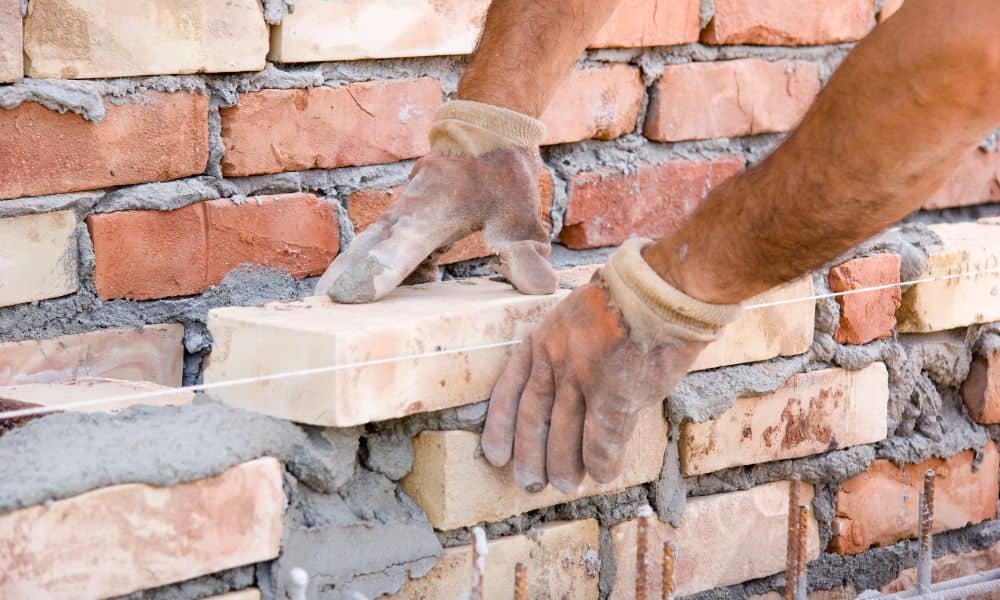
Masonry can add timeless beauty, durability, and value to your home—but only if it’s done right. Whether you’re planning to install a new brick façade, build an outdoor fireplace, or repair stonework, hiring the right masonry contractor is critical.
Unfortunately, many homeowners make avoidable mistakes that lead to poor workmanship, unexpected costs, or even structural damage. This guide will walk you through the top five mistakes to avoid when hiring masonry contractors, so your project is smooth, successful, and stress-free.
Mistake #1: Hiring Without Verifying Licensing and Insurance
One of the most common—and costly—mistakes is working with unlicensed or uninsured contractors. Even if someone comes highly recommended or offers a tempting price, hiring without verifying credentials puts you at serious risk.
Why It Matters:
- Licensed contractors follow local building codes and safety regulations.
- Insurance coverage protects you from liability if someone gets injured on your property or damages occur.
Pro Tip:
Ask for proof of license and general liability insurance. If they hesitate or give excuses, walk away.
Mistake #2: Choosing Based Solely on the Lowest Bid
It’s tempting to go with the cheapest quote, especially when budgeting for a home improvement project. But in masonry, you often get what you pay for. Low bids may mean:
- Inferior materials
- Inexperienced labor
- Rushed or careless work
This can lead to crumbling joints, uneven surfaces, or structural issues down the line—costing you much more in repairs.
What to Do Instead:
Compare multiple bids, but also evaluate:
- The materials listed
- Timeline and scope
- Past project quality
Pay for value—not just a lower price.
Mistake #3: Not Reviewing Past Work or Asking for References
Would you hire someone to renovate your home without ever seeing their work? Many do—and regret it. A professional masonry contractor should have a portfolio of past projects and a list of references.
What to Look For:
- Before-and-after project photos
- Recent reviews or testimonials
- Willingness to provide at least 2–3 references
Talking to past clients gives insight into their work quality, reliability, and professionalism.
Mistake #4: Ignoring Communication and Professionalism Early On
How a contractor communicates before the job starts is often a preview of what’s to come. If they’re slow to respond, unclear in their answers, or miss meetings, take it as a warning sign.
Signs to Watch For:
- Vague or changing estimates
- Poor email or call response
- No written agreement or timeline
A professional contractor should be clear, organized, and responsive from the start.
Mistake #5: Failing to Get a Detailed Written Contract
Verbal agreements won’t protect you when things go wrong. A detailed written contract should outline:
- The exact scope of work
- Start and completion dates
- Payment schedule
- Materials to be used
- Warranties or guarantees
Without this, you risk miscommunication, added costs, and disputes.
Tip:
If a contractor resists putting terms in writing, consider it a major red flag.
How to Spot Reliable Masonry Contractors Near You
Finding the right contractor doesn’t have to be hard. Here’s how to identify trustworthy masonry contractors near you:
- Check online directories with verified reviews
- Look for contractors affiliated with industry associations (e.g., MCAA)
- Ask for referrals from neighbors or local builders
- Visit recent projects in your area if possible
Always compare options and trust your instincts.
Questions to Ask Before You Sign a Masonry Contract
To make an informed decision, ask:
- What type of mortar and materials will be used?
- How many years of experience do you have in this specific work?
- What is your plan for handling delays or weather disruptions?
- Do you offer warranties?
- Will you provide a detailed, itemized quote?
These questions help separate professionals from amateurs.
Benefits of Hiring Skilled Masonry Contractors
A qualified contractor brings more than just tools—they bring peace of mind.
Here’s what you gain:
- Longevity: Brick and stonework that lasts for decades
- Aesthetic value: Beautiful finishes that enhance curb appeal
- Safety: Properly installed structural elements
- Property value: Professional masonry can boost resale value significantly
In short, it’s an investment that pays off.
Conclusion: Invest Wisely in Professional Masonry Contractors
Your home deserves more than guesswork and shortcuts. By avoiding these 5 mistakes when hiring masonry contractors, you set your project up for success—ensuring quality work, lasting beauty, and peace of mind.
Do your homework, ask the right questions, and never settle for less than licensed, insured, and experienced professionals.
FAQs
Q1: How much do masonry contractors typically charge?
Averages vary by region, materials, and project size. Get 2–3 estimates to compare.
Q2: Do I need permits for masonry work?
Some projects, like structural walls or chimneys, may require permits. A good contractor will guide you through the process.
Q3: How long does a typical masonry job take?
Small jobs can take a few days; larger projects may run 2–4 weeks depending on complexity and weather.
Q4: Can I provide my own materials?
Sometimes. Discuss this upfront—contractors often prefer to supply materials they trust.
Q5: What’s the best time of year to schedule masonry work?
Spring through early fall is ideal, as most masonry requires mild temperatures to cure properly.
Q6: Should I get a warranty in writing?
Yes! A written warranty on both materials and labor protects your investment.